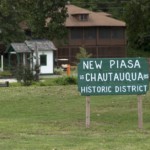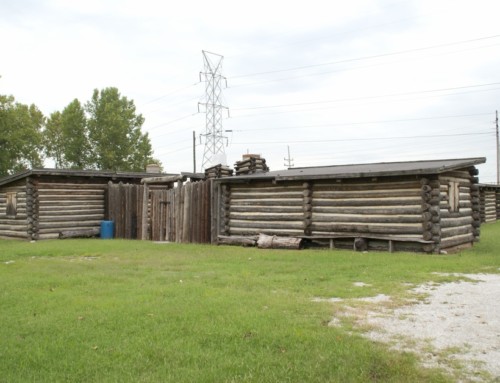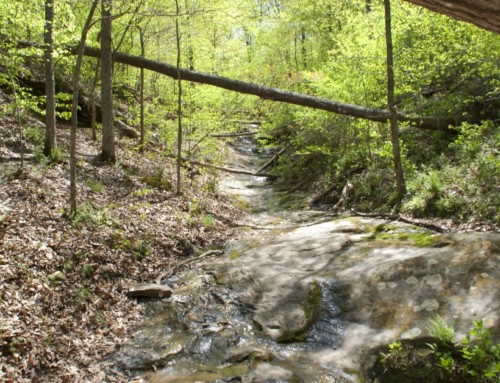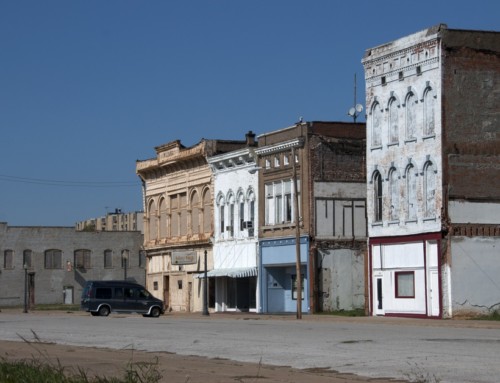Introduction
What began as a summer retreat to improve minds and souls has had surprising staying power. Cottages replaced tents and resident families replaced temporary visitors as the community evolved into a private riverside community.
Visitor Information
Chautaugua is a private community, so you need to know someone to visit. For information on neighboring communities, check with the Grafton Welcome Center (950 E. Main St.; 618.786.7000) or Great Rivers & Routes (200 Piasa St.; 618.465.6676).
History
A Chautauqua is as much an aspiration as it is a place. The word is derived from an Algonquin language and supposedly means a lake or a community by a lake. At least, that’s what the New Yorkers who started the first one believed. In 1874, a few members of the Methodist Episcopal Church in New York came up with the idea to create a retreat for Sunday school teachers at Chautauqua Lake. Once assembled, they would have the chance to better themselves by attending lectures on topics in the social sciences and humanities. At other times of day, they might get music or art lessons. It was all about personal improvement, and it was all grounded firmly in Methodist Episcopal spirituality.
The idea found a receptive audience in post-Civil War America. In 1885, the Sunday School Conference of Southern Illinois and the Methodist Episcopal Church Conferences of Southern Illinois and St. Louis teamed up to bring the idea to the heartland. The Western Chautauqua, as it was first called, was founded on a similar set of ideas as the New York progenitor, “to maintain a summer resort for literary, scientific, and religious instruction and culture.” They held their first camp in August 1885, and by the next year had raised enough money to buy 580 acres in Babb’s Hollow for a permanent home.
In the early years, guests traveled to the Chautauqua by buggy, steamboat, or train. Round-trip steamboat fare from St. Louis cost 0.75 cents in 1891 or 0.50 cents from Alton. Once at the site, guests rented a tent to stay in for the duration of the Chautauqua. An ad for one season advertised rates of $15 for 30 days for a 10’ x 12’ x 3’ tent with two cots, sheets, and pillows. The largest tent, 14’ x 24’ x 6’, rented for $23.50 for a month and came with five cots. If you wanted any other furnishings, you could bring them yourself or pay to rent them.
While the earliest Chautauquas were just one week long (in August), they eventually extended out to a full month. In the early 20th century, a typical schedule included time for prayers, Sunday school lessons, lectures, round table discussions, and a sermon or a song (or both). In the 1890 program, guests learned about topics like immigration and citizenship, but they could also attend interesting lectures called “Wise and Otherwise” and “Tramps and their Kin.” In 1896, a lecture by a famous preacher of the day, Dr. Talmage Day, drew 3,000 people. Williams Jennings Bryan spoke four times over the years.
The site began to take on a feeling of permanence in the late 1890s when a hotel was built. Gradually, cottages went up, too. But even as folks got used to the idea of spending a chunk of every summer at Chautauqua, the threat of disruption loomed. The association survived bankruptcy in 1908. In the 1950s, an existential threat emerged.
The US government was looking for a site to build an Air Force Academy. When Chautauqua was selected as one of three finalists, local folks braced for the worst. Eventually, though, Colorado Springs was chosen and Chautauqua carried on.
Over time, the cottages of Chautauqua transitioned from rentals for transient guests to private ownership by local families who spend the bulk of the summer in them. The community still hosts special events like performances and lectures, but it is essentially a private community. You can visit if a resident invites you, but otherwise only members of the community get access.
**Chautaugua is covered in Road Tripping Along the Great River Road, Vol. 1. Click the link above for more. Disclosure: This website may be compensated for linking to other sites or for sales of products we link to.
Community-supported writing
If you like the content at the Mississippi Valley Traveler, please consider showing your support by making a one-time contribution or by subscribing through Patreon. Book sales don’t fully cover my costs, and I don’t have deep corporate pockets bankrolling my work. I’m a freelance writer bringing you stories about life along the Mississippi River. I need your help to keep this going. Every dollar you contribute makes it possible for me to continue sharing stories about America’s Greatest River!
©Dean Klinkenberg, 2024, 2021, 2018,2013,2011






